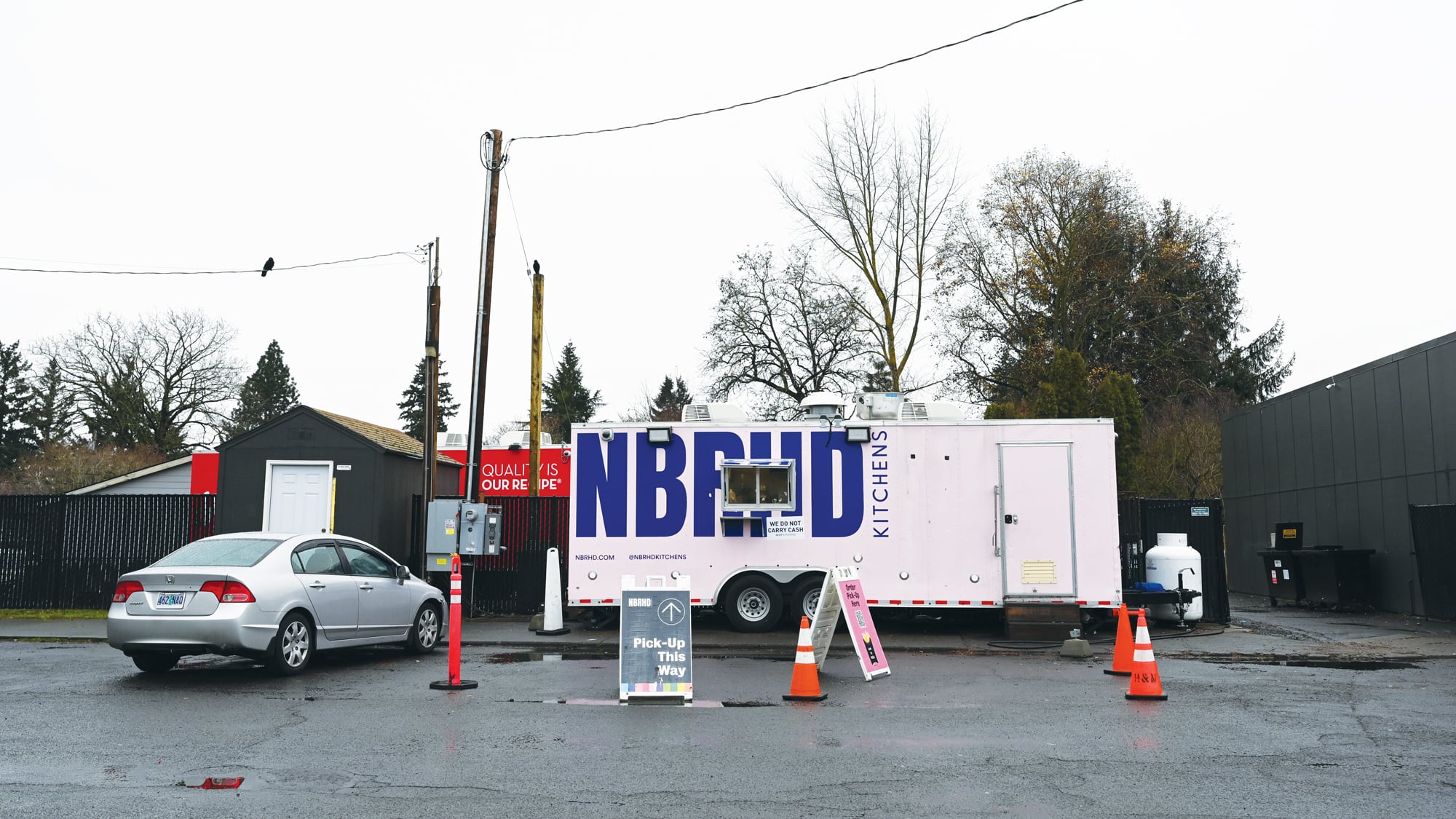The Miami ghost kitchen company that scattered its trucks across Portland shortly before the pandemic and received over $1 billion from SoftBank and other overseas investors appears to have called it quits in Portland.
Miami-based Reef Technology last week closed most, if not all, of its remaining ghost kitchens across the city. That’s according to two former employees, landlords of parking lots where Reef parked its trucks, records from Multnomah County health officials, and a scouring of Reef’s now-unavailable brands on food delivery apps.
Reef spokesman Mason Harrison did not respond to multiple texts, phone calls and emails seeking comment from the company.
At its height in 2021, the Miami-based startup operated 26 “vessels” across Portland—trucks where its employees cooked food for delivery. Each vessel sold seven to 10 food brands, under names like Mr. Beast Burger, Sticky Wings and Man vs. Fries.
Reef entered Portland in 2019 with grand plans to turn drab, underused parking lots into hyperlocal centers of commerce filled with electric vehicle-charging stations, ghost kitchens offering delivery-only food, and pop-up grocers. The idea was a utopian one: create micro-communities so that no city dweller need walk more than four or five blocks to access all of the essentials.
But, as WW wrote in a Dec. 26 cover story, Reef’s rollout in Portland was rocky.
Reef entered Portland in part by managing existing surface parking lots. By last Christmas, it had lost many of its biggest parking lot contracts due to poor performance, including contracts for Moda Center, the Expo and Convention centers, and Downtown Development Group.
Its ghost kitchen profits never rose above anemic, even at its 2021 height, and the company had repeated run-ins with the Multnomah County Health Department for overflowing trash bins, rat infestations and improper graywater disposal. By December, at least 16 of its trucks were shuttered already.
Now, at least five Reef trucks still operational last December are closed. Its last remaining commissary kitchen—where it partially prepped food for the trucks—is unoccupied.
The last Reef truck at Park the Carts, a food truck pod along Northeast Martin Luther King Jr. Blvd, is leaving imminently, says pod owner Angela Park.
“They’re going to be moving the vessel out anytime soon,” Park says. “They just signed a whole year lease a week ago. And then they just canceled it. They only said that they’re going to be downsizing for the market.”
An employee at the Every Day Food Mart on Southeast Foster Road says the Reef truck parked in its lot was towed away just a couple of days ago. An employee at ReRack on Northeast Sandy Boulevard, where a Reef truck once operated, says it’s been shut down for more than a couple of days now, but less than a week. The owners of a property along Southeast 82nd Avenue where Reef parked its carts says the company gave a 90-day notice of lease termination just last week.
The landlord of a building where Reef operated its commissary kitchen in Southeast Portland says that while Reef is still in its lease, the company “seems to have pulled up anchor and is not physically working out of the space, at least at present.”
None of the brands sold from Reef carts is still available on food delivery apps like Grubhub and Uber Eats.
Two weeks ago, the remnants of the Reef vision sat in an Old Town parking lot. Packed like sardines, the 13 Reef trucks stand unused and bolted shut.
And records from the Multnomah County Health Department show a Reef manager emailed health officials in early March asking for the latest inspection reports on the six remaining Reef locations in Portland. None of those vessels remains open, according to landlords and store employees reached at each of the six locations.
